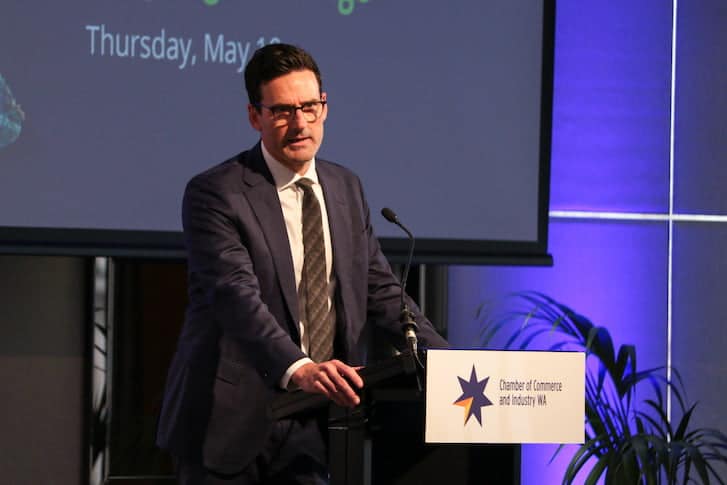 CCIWA is concerned the Federal Government’s latest industrial relations reforms hurt productivity, hamper investment and lead to deteriorating business conditions.
CCIWA is concerned the Federal Government’s latest industrial relations reforms hurt productivity, hamper investment and lead to deteriorating business conditions.
“Small to medium-sized businesses are already doing it tough,” says Chris Rodwell, CCIWA’s CEO.
“Business doesn’t need reforms that are working against them in an increasingly difficult operating environment. The reforms will undermine efforts to grow and to create jobs. If the Federal Government’s aim is to get productivity moving, then these reforms are an own goal.”
Hailed as the biggest change to the industrial relations landscape in decades, businesses are already grappling with the first wave of Fair Work Act reforms which were passed in December last year.
This first wave of reform introduced into the Fair Work Act involved monumental changes to enterprise bargaining from June 2023 with the potential to require businesses of all sizes to bargain with their competitors for the employment terms that will apply to their workforce, including pay rates.
There are also increased powers for the Fair Work Commission to arbitrate outcomes where enterprise agreement negotiations stall, or where an employee makes a flexible work request that a business refuses. Additionally, it created new limitations for fixed-term contracts, from 6 December 2023. These reforms are oriented towards assisting individual workers to the detriment of businesses.
The Government is expected to release its third round of IR reforms in early September.
This will include significant areas of reform such as:
- The Same Job, Same Pay amendments that impact on the labour hire industry,
- Changes to casual employment including the definition of casual worker, which will create uncertainty for employers and employees,
- Expanding the Fair Work Commission’s powers to set minimum standards for workers involved in “employee-like” forms of work,
- Changes to discrimination laws to provide stronger protections against discrimination and harassment,
- Criminalisation of wage theft, and
- Possibly, stronger rights for union delegates and expanded entry rights for unions.
Business struggling with reforms
Many of the changes to laws introduced by the first tranche of Fair Work Act reforms – including changes to bargaining, industrial action and enterprise agreement making – became operational on 6 June 2023. This means businesses are still adjusting to these complex new reforms.
Rodwell says businesses are struggling with the many new reforms. Rather than providing businesses with certainty, they are creating more uncertainty, and complexity.
“The reforms make it more challenging and expensive for businesses to operate efficiently and profitably,” Chris Rodwell says.
“It also makes it harder for businesses to adjust to changing economic conditions and shocks.”
Hurting productivity
Australia’s productivity has fallen 4.5% for the year to March 2023, according to the Australian Bureau of Statistics.
CCIWA has joined with the Australian Chamber of Commerce (ACCI) and other business groups to stand in broad opposition to the third wave of reforms.
“These changes can tip businesses into a more challenging operating environment,” Rodwell says.
“It would be a handbrake on wage growth, investment, profitability, and productivity.”
CCIWA will be closely monitoring the implications for businesses.
To keep up to date with the latest IR reforms and keep up with what CCIWA is doing for Members, click here, Changes to Workplace Laws — CCIWA






